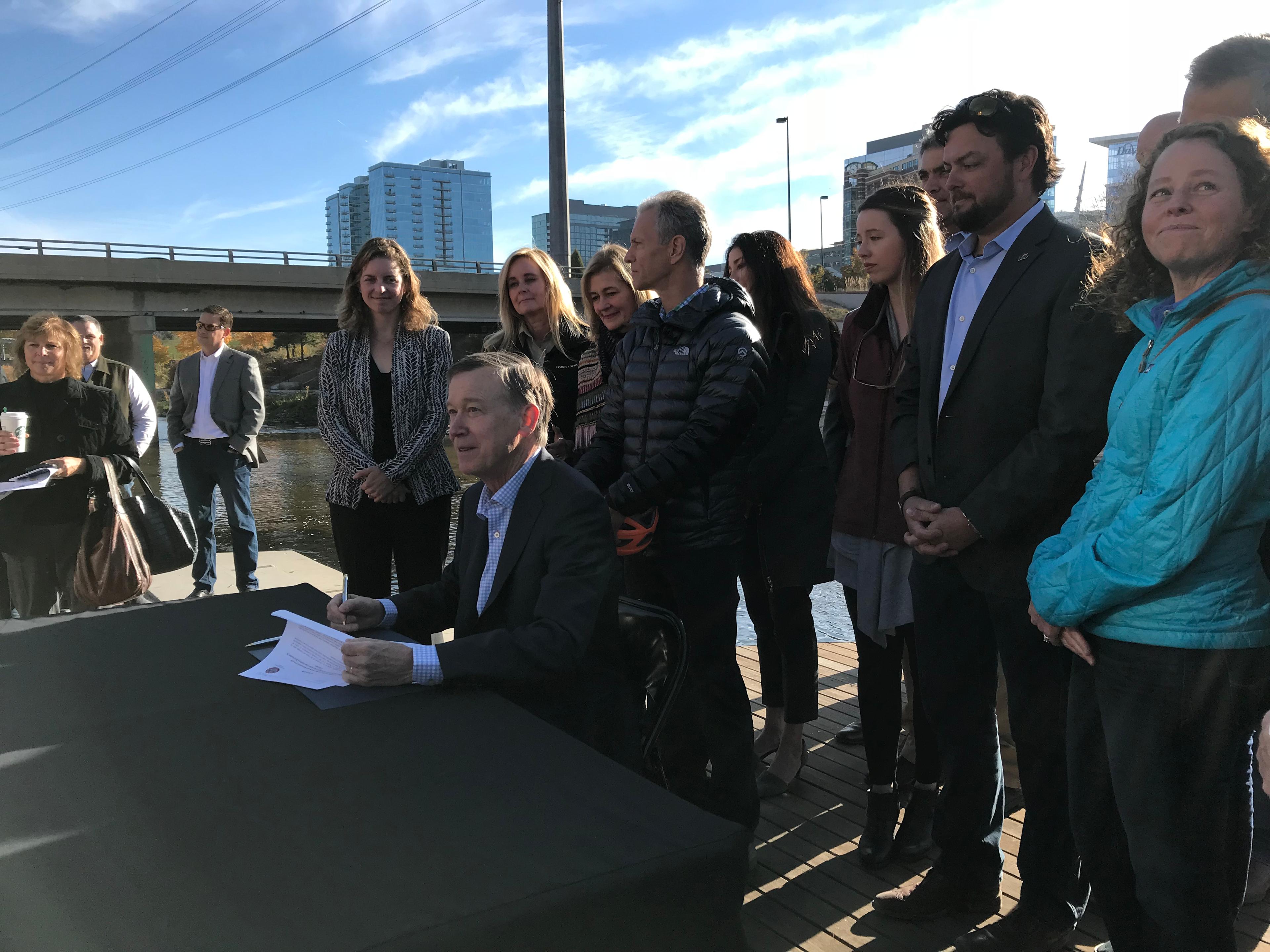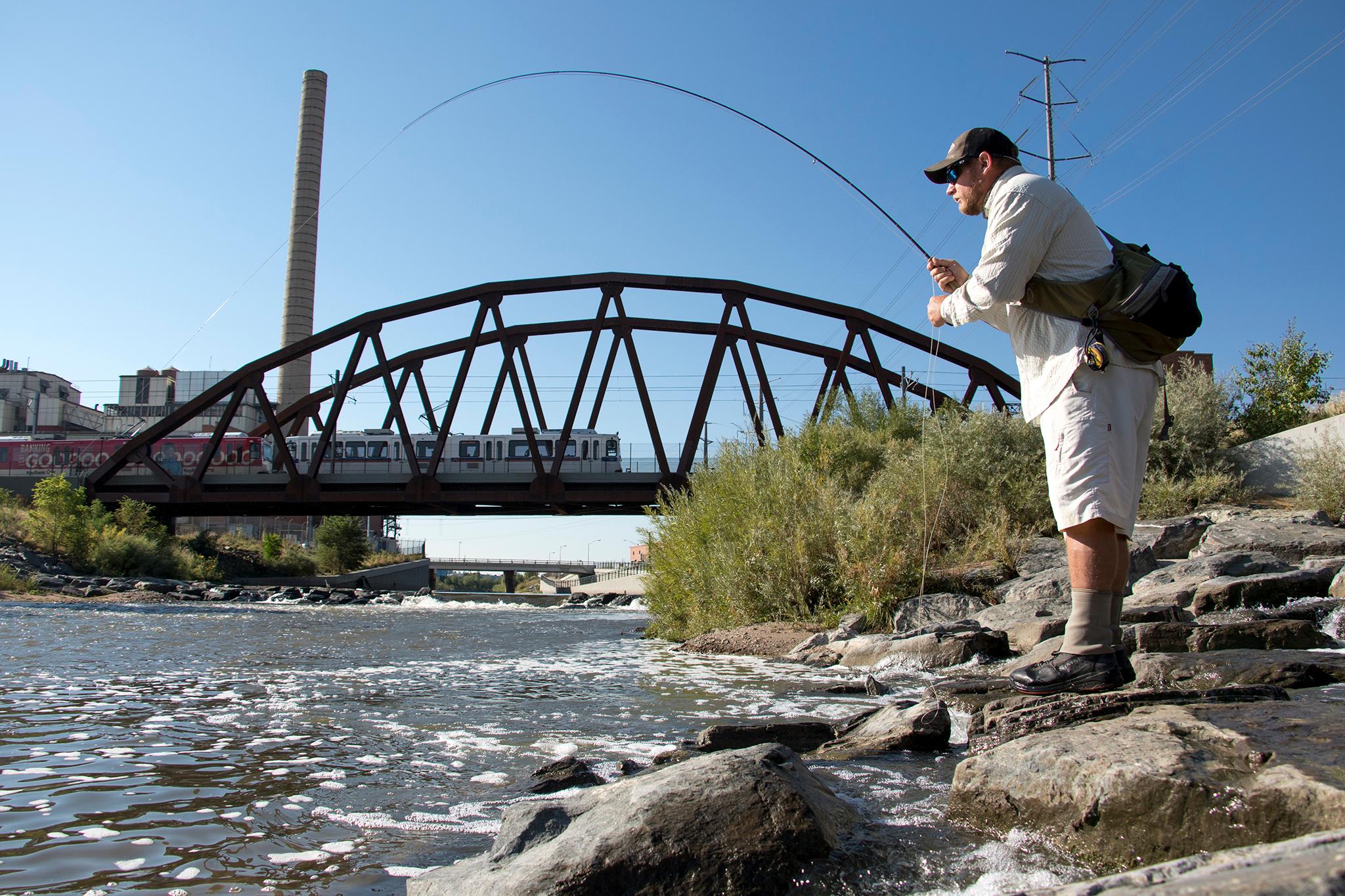Gov. John Hickenlooper on Friday signed an executive order creating a new council to promote the state’s outdoor recreation industry and help the continual growth of one of the state’s most iconic characteristics.
With Confluence Park serving as his backdrop, Hickenlooper said the council will be a “big step forward."
The Inter-Agency Trails and Recreation Council, as it's called, will help cement some of the work Hickenlooper's administration has done for the outdoor recreational industry by more clearly outlining how multiple agencies can work together and advance his Colorado the Beautiful campaign.
That campaign launched in 2015 and aims to have every resident live within a 10-minute walk from a park, trail or green space within a generation. It will also help remind residents of what he said are little-known state statutes allowing people more flexibility to move around open spaces even if they're not public.
“We’re one of those few states that — again, with the permission of the landowner — people can walk across that land. In other words, in places where you need to, you can walk across that land to get to wilderness,” Hickenlooper said.
As Hickenlooper’s term winds down, was this an attempt to secure his own legacy?
“I mean, the next governor, if they want to, they can dismantle all this stuff. But I don’t — no matter who the next governor is — I don’t think they’ll want to,” Hickenlooper said.

Hickenlooper lauded the many people he said “put their heart and soul” into establishing Colorado as a state encourage recreational activity. He name-dropped former U.S. Sen. and Interior Secretary Ken Salazar and several state employees for helping build a foundation. He called the outdoors “our North Star.”
Colorado's outdoors is more than a nice amenity — it's an economic boon.
Hickenlooper on Friday unveiled some new data highlighting the contributions the outdoors industry is making to the state’s economy:
- 511,000 direct jobs supported in the industry, or 19 percent of the state’s labor force
- $62 billion contributed to the state’s economy in 2017
- $35 billion to the state's GDP, more than 10 percent overall
“That is a monster commitment to our economy,” Hickenlooper said. He said least 92 percent of residents participate in recreational activities every couple of weeks. Hickenlooper called them a “critical” part of the state’ economy.
Hickenlooper, who used to cycle but said a knee has limited his riding, explained how the new initiative could benefit people in the metro area. He said the whole idea is part of a “state of mind” that includes healthier living and reducing traffic congestion.
“If we talk about outdoor recreation in the mountains, we’re also talking about outdoor recreation right here in the city,” Hickenlooper said. “Metro Denver now has 1,000 miles of bike trails. We are one of the leaders in the country. ... Not all, but almost all are connected. So you can get all over the metro area on bikes.”
Luis Benitez, the state's first-ever director at the Colorado Outdoor Recreation Industry Office, said Friday that outdoor recreation is part of the “state’s DNA.” Hickenlooper said he believes there will be more offices like the one Benitez leads across the country. The office launched in 2015.
“Our industry, not only in Colorado but in the United States, has an incredible amount of momentum right now,” Benitez said.
Department of Natural Resources executive director Bob Randall said the state has earned its reputation as a prime destination for business and people looking to relocate in part because of the state's natural resources and wildlife.
Randall said many people already have a “strong connection” to the outdoors. But his office wants to ensure more access to outdoor recreation for people in urban areas who can be disconnected, and begin building a connection between youth, including “children who’ve traded playgrounds for Playstation.”
“We know that the time will come to pass the baton,” Randall said. “And without a new generation of young people who share curiosity, passion and wonder about sustaining our natural treasures, we put this grand inheritance at risk.”













